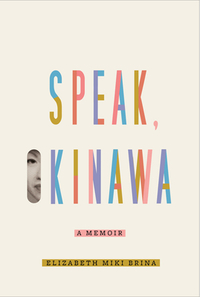Take a photo of a barcode or cover
challenging
emotional
hopeful
informative
reflective
fast-paced
MORE GENERATIONAL TRAUMA YAY
So beautifully written and creative with the storytelling structure. On the surface it might seem similar to a memoir like crying in hmart but this one dives deeper into the individuals, relationships, and Okinawa’s history. Despite the strong emotional moments and serious topic matter still manages to have funny and warm moments too.
reflective
slow-paced
emotional
informative
reflective
medium-paced
challenging
emotional
hopeful
informative
inspiring
reflective
sad
medium-paced
Amazing memoir to start the year. Elizabeth Miki Brina does not hold back as she wrestles with identity and family bonds through a gorgeous narrative voice. It is beautiful, raw, important, and we are lucky it exists!
informative
reflective
medium-paced
emotional
informative
reflective
medium-paced





